


 Customer Login
AuthLogin
Purchase By Reg. Card
Customer Login
AuthLogin
Purchase By Reg. Card
|
Login Help : 📞 01686797756 📞 01722436067 ... |
+88-01686797756
Login
Customer Login
Authorized Login
Purchase By Reg. Card.
+88-01686797756 Login Customer Login Authorized Login Purchase By Reg. Card. |
|
| Pharmacy Management Software |
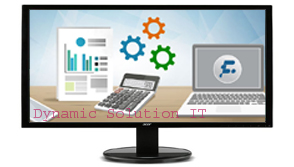
Customer Ledger, Supplier Ledger, Bank Ledger, Employee Profile, Employee Attendance, Employee Ledger, Salary Out, Income Statement, Expense Statement, Cash Book, Receipt & Payment, Trail Balance, Balance Sheet, Profit & Loss and More...
User Menual Order Now |
| HR-Payroll Software |
|
* Multi User System .
* Employee Performance evaluation * Employee scheduling * Employee Time tracking & Attendance management * Employee Recruiting & Applicant tracking * Employee Learning management * Payroll management * Analytics & Reporting * Bill/Challan/Quotation/Money Receipt . * Debit Voucher/Credit Voucher. * Direct/Bill To Bill Collection . * Date Wise Sales Report . * Date Wise Sales Return Report . * Date Wise Due Sales Report. * Party Wise Sales Report . * Date Wise Purchase Report . * Date Wise Purchase Return Report . * Party Wise Purchase Report . * Date Wise Expenditure Report . * Date Wise Product Stock Report . * Date Wise Party Ledger Report . * Date Wise Party Due Report . * Date Wise Discount Report . * Date Wise Vat Report . * Date Wise Cash Book Report . * Date Wise Petty Cash . * Date Wise Bank Balance Report . * Product Wise Profit Report . * Party Wise Profit Report . * Date Wise Income Statement Report . * Date Wise Expense Statement Report . * Date Wise Receipt & Payment Report . * Date Wise Profit Report . * Date Wise Balance Sheet . * SMS Integrated System . * Barcode or Menual User System . * Barcode Generate & Printing System . * Online & Offline System . * Data Backup System . |
| What is Accounting Software ? | |
|
Accounting software is typically composed of various modules, different sections dealing with particular areas of accounting. Among the most common are:
Core modules General ledger—the company's "books" Non-core modules[citation needed] Drill down | |
| What is HR management software ? | |
|
HR management software helps improve business efficiency by automating workforce, recruitment, payroll and compliance management processes, to name a few. It combines all these elements in a central location, making all employee information accessible to all relevant personnel.
HR management software has become an indispensable asset in almost every corporate environment. Even small and medium businesses are letting go of the idea that HR systems are the costly, fancy additions they don’t really need, as the long term gain of leveraging HR technology saves much beyond the limit of what they’d spend to get a product. There is no unified definition of HR management software that could cover all advanced aspects of this technology, but by default, it compiles all recruitment and workforce management systems used to improve business efficiency. The purpose of HR management software is to combine different human resource and administration processes in a centralized location, from where the manager can also assign tasks, monitor and evaluate progress, and reward the best performers in the team. Basically, HR software takes you a step ahead in improving decision making, and does so on a lite, competitive price. How does HR management software work? Despite of the HR products arena being one of the most diverse software landscapes, almost all HRIS packages come down to a defined set of management goals. They usually cover: * A recruitment module used to prepare and distribute vacancy announcements * A dedicated hub for preselecting and evaluating applicants * An easy assign-and-schedule mechanism for a 360-degree overview on your workforce * An array of monitoring and evaluation tools that come particularly handy in large and remote teams. Most of the time, HR systems are packed with custom roles and permissions, and offer a user-friendly interface that doesn’t take time to learn. How to choose a solid HR system for your company? The process won’t be easy, as you’ll be offered apps of all categories, starting with simple spreadsheet management and ending with fully-featured enterprise-level workforce governance. Beyond answering the definition of HR management software, we listed all important all aspects and details to keep in mind. In this article we will will discuss: * Benefits of HR management software * Types of HR management software * Features of HR management software * Factors to consider when buying * Pricing of HR management software * Potential issues Why use HR management software? You’ve learnt what is HR management software, but what are its uses? HR software streamlines workforce management processes, and is thus able to make the most of your team’s potential. It is applicable in all business settings to streamline recruitment, screening, hiring, and evaluation, and works particularly fine for talent finders and recruitment agencies that connect talented professionals with their future employers. Even among beginner teams, HR helps develop healthy management habits, as it puts in place detailed performance evaluation unlike any similar system. Which are the main advantages of HR management software? A 360-degree overview of your employees and their skills: The main thing each HR system does is to centralize employee information, and help you develop smarter courses of action when assigning tasks. Thanks to these systems, employees get detailed profiles with all of their information and assigned duties, and are able to update those themselves to save you some additional time. Basically, when a task is ready to go you will always know who can do it the best, and when it will be completed. Efficient recruiting: Both core and operational HR systems offer easy recruiting modules, as they help you prepare vacancy announcements and distribute them on different job boards, and then preselect and evaluate only those applicants who meet the criteria for that post. Onboarding is also made easy, with a searchable and user-friendly database that helps retain talented performance in your team. End-to-end workforce management: With a good HR system in place, you can forget about confusing spreadsheets and email miscommunication. The system brings all HR-related operations under a single roof, which means you can assign tasks, follow up progress, or even reward participants from a single, cost-effective solution. Enhanced collaboration: Most HR systems nowadays provide users with a dedicated communication panel, where they can follow recent updates, comment on tasks, or share ideas. In the ideal scenario, the searchable database of working materials is accessible to everybody and from any device, and allows unlimited file sharing between members of the team. Accurate evaluation and appreciation: Any expert out there can confirm that talented employees’ dissatisfaction is a leading cause for job abandonment, right because top performers don’t feel estimated, and see no chance to improve where they’re working. A good HR system helps monitor the progress of each, and develop quality practices for appreciating good work, and giving the best employees the reward they deserve. On the opposite side of the axis, the system also helps unveil negative trends and patters, and helps you understand how an employee can be helped and advised. Payroll management: Top HR management systems are at the same time full steam accounting and expense management machines, where you can govern the benefits of your employees, deduct leaves and confirm tax compliance. Instead of delivering such sensitive tasks to an expensive third-party provider, you can now complete them yourself from a system that has full insight of your data. What are the types of HR management software? We’ve defined what is HR management software, let’s now take a look at its different types. In order to categorize any system, we need to understand how does an HR management software work, and which operations it was developed to complete. This is the standardized way to divide and classify HR systems, other than their pricing, available deployment method, integrations, and similar criteria. Depending on the features of an HR management software, it can fall under any of the following criteria: Core operations HR systems Most HR systems belong exactly to the core operations category, as it fuses the three fundamental pillars of employee management: personnel tracking, benefits administration, and payroll management. Automating such functions is the very basic functionality required by any business, and yet one of the most tedious parts of manual workforce management about to be eliminated. Strategic HR systems Strategic HR management systems pay more attention to hiring, and help the user attract and cultivate talent, and provide the best possible onboarding for employees. These systems usually come with corporate learning management kits, applicants tracking and recruiting tools and retention mechanisms, and are predominantly purchased by employment agencies and professional recruiters. End-to-end workforce management kits These software tools help schedule and monitor workforce once hirees are inserted in the system, and do a pretty good job evaluating their performance. They track time, expenses, and attendance, comply with all applicable labor laws and standards, and integrate with an array of accounting and BI tools to help turn HR data into operable intelligence. More often than rare, workforce management vendors offer premium packages that cover all three types of HR functionality. What does an HR management software do? We’ve answered the question what is HR management software earlier in the article, now let’s look at its main features. In order to understand a system’s performance in detail, we’re going to give a look to the main features offered by all popular HR vendors. Keep in mind, however, that most popular HR systems nowadays are packed with brand new widgets and extraordinary functionalities that give them a competitive edge against other vendors. The need for those, as expected, will depend on your industry and the type of team you’re governing. Here are the HR features you should be looking for: Performance evaluation. Your HR system should be the centralized location from where you supervise the work of your employees, track progress, and set goals for them and the team. Employee scheduling. Using this feature, you can easily schedule shifts and attendance, and keep track of who is doing what at any moment of time. This will improve your assignment practices, improve cooperation between departments, and soothe the effect of bumpy changes in the schedule. Time tracking & Attendance management. Most businesses trigger this function to manage absence, and make sure it won’t affect their regular line of work. Certain solutions will also monitor accrual and usage of PTO and sick days, or provide rules-based mechanisms with alerts and notifications. Recruiting & Applicant tracking. With modules such as this one, the manager can store and evaluate applications, monitor candidates, and perform accurate background check. The very same module will often generate tools for efficient onboarding and access to materials. Learning management. HR systems are not all about cultivating workforce and directing its performance. What they do even better is to retain talented performers, by giving them a chance to learn something new and to develop. Needless to say, this makes every team more competitive, as top workers know they will be rewarded for the effort they invest. Payroll management. It is questionable whether an HR system would make sense without a benefits and payroll management kit, exactly because handing payment dues is the most tedious and error-prone part of an HR manager’s work. Good systems will thus provide employee benefits including paid time off, insurance policies on medical/dental/life, and 401k participation, and also manages employee 401k contributions, salaries, bonuses, as well as health other deductions; calculates taxes; and cuts paychecks. You should also check whether they are enabled for direct deposits, and whether they work in line with tax rules and labor standards valid in your region. Analytics & Reporting. In the best possible case, your HR system will be able to process the inserted data, and help you pull off all desired stats without using a third-party app. Factors to consider when you buy HR management software Compliance with labor laws and tax standards. When choosing your new HR system, settle for nothing more but an organized platform you know would never cause serious interference with your authorities. This means working in line with tax provisions and labor standards valid in your region, and exportable reports you could use to document and evident your activities. Customization and scalability. Another factor that will influence your decision is the flexibility of the system, as we’re all ideally looking for the tool where we get to craft our own working processes. This matters particularly to evaluation mechanisms and recruiting practices, but also ensures we own a tool that can grow in parallel with our workforce. Ease of use. Always observe your new HR system as a front and back end service, and make sure it is intuitive enough not to stand in your way or the way of your employees. In the best possible case, your team won’t need any training at all to understand how the system works. Moderate pricing. While it is true that the best features are reserved for premium users, quality HR systems can be found even for free. Therefore, check whether it makes sense to invest in a prime-brand and high market-tier product before you’ve done it. Reliable support. A large amount of what you’re paying to get your HR system is reserved for obtaining technical support, so make sure you check their reliability and knowledge before you’ve purchased their services. Integrations. Connectivity matters to any type of software, but for HR apps it is simply indispensable. Scan the list of associated software for each system you’re considering (accounting and LMS apps in particular), and see whether it will be easy to implement the new tool in the same infrastructure. If possible, get an open API system and connect it to all apps you’re using. Pricing of HR management software The cost of HR management software depends on the features that are included in different plans, as well as deployment and access to support. Some programs limit the number of recorded employee entries for basic plans, while in other all premium functionality is available for little to no payment. Potential issues Scheduling inefficiency. As good as they may have become, HR systems still require some serious human input in order to come up with quality results. Automating workforce management offers plenty of benefits to large and busy teams, but may also cause catastrophic errors that are difficult to fix. Change management. A zone where HR systems may really fall short is change management, and there’s where even the best initiatives are derailed. HR software may provide the insight necessary to prevent problems, but won’t be of that much help to examine their exact organizational impact. Privacy concerns. Privacy breaches are not rare while using HR systems, as all of your employees’ work is screened in detail, and may easily become the object of a misuse or any other dishonest practice. |
| * POS | Super Shop Software |
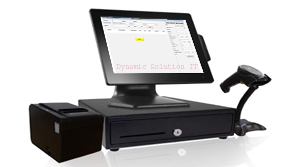
Purchase, Sales, Stock, Barcode or Menual System, Cash Book, Party Ledger, Receipt & Payment, Income, Expense, Daily Sales, Daily Purchase, Customer Due, Supplier Due, Profit & Loss and More...
Read More ... Order Now |
| * Computer | Mobile | Electronic Item Shop Software |
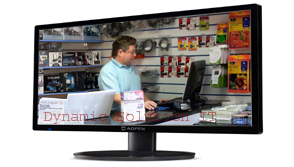
Purchase, Sales, Stock, Warranty, Gurrantee, Repair list, Gift, Barcode or Menual System, Cash Book, Party Ledger,
Receipt & Payment, Income, Expense, Customer Due, Supplier Due, Profit & Loss and More...
Read More ... Order Now |
| * Software & Web Design Developing |
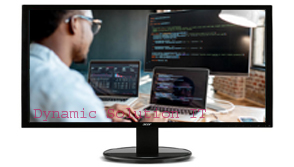
Requirement Study, Analysis, Planning, User Friendly,
User Acceptance Testing, Quality Assurance, Designing, Programming,
Final Testing, Training, Delivery & More...
Read More ... Order Now |
| * Accounts,HR & Payroll Software |
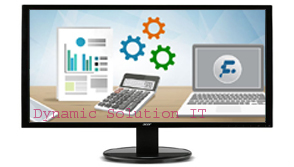
Customer Ledger, Supplier Ledger, Bank Ledger, Employee Profile, Employee Attendance, Employee Ledger, Salary Out, Income Statement, Expense Statement,
Cash Book, Receipt & Payment, Trail Balance, Balance Sheet, Profit & Loss and More...
Read More ... Order Now |
| * School & College Management Software |
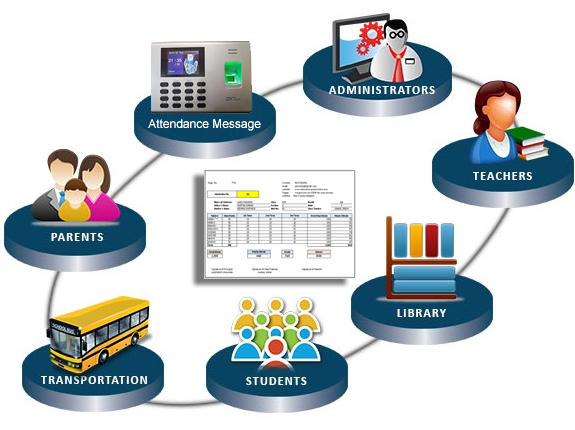
Student, Teacher, Employee Profile Entry, Attendance System & Reporting with mobile sms notification,
Result Processing & Publishing in Website, Student Due Reports, Accounts,
Any Notice Sent to Guardian Mobile Using Messaging System & More...
Read More ... Order Now |
| * Hospital | Clinic Management Software |
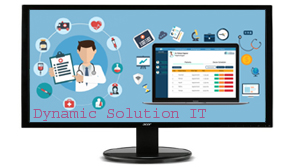
Outdoor,Indoor/Admitted Patient Module, Laboratory Information Module, Radiology Module, Diagnosis Module,
Reporting Management Module, Administration Management Module, Doctors Module, Billing and Accounting Module & More...
Read More ... Order Now |
|
| 2020 Dynamic Solution IT All Rights Reserved. |